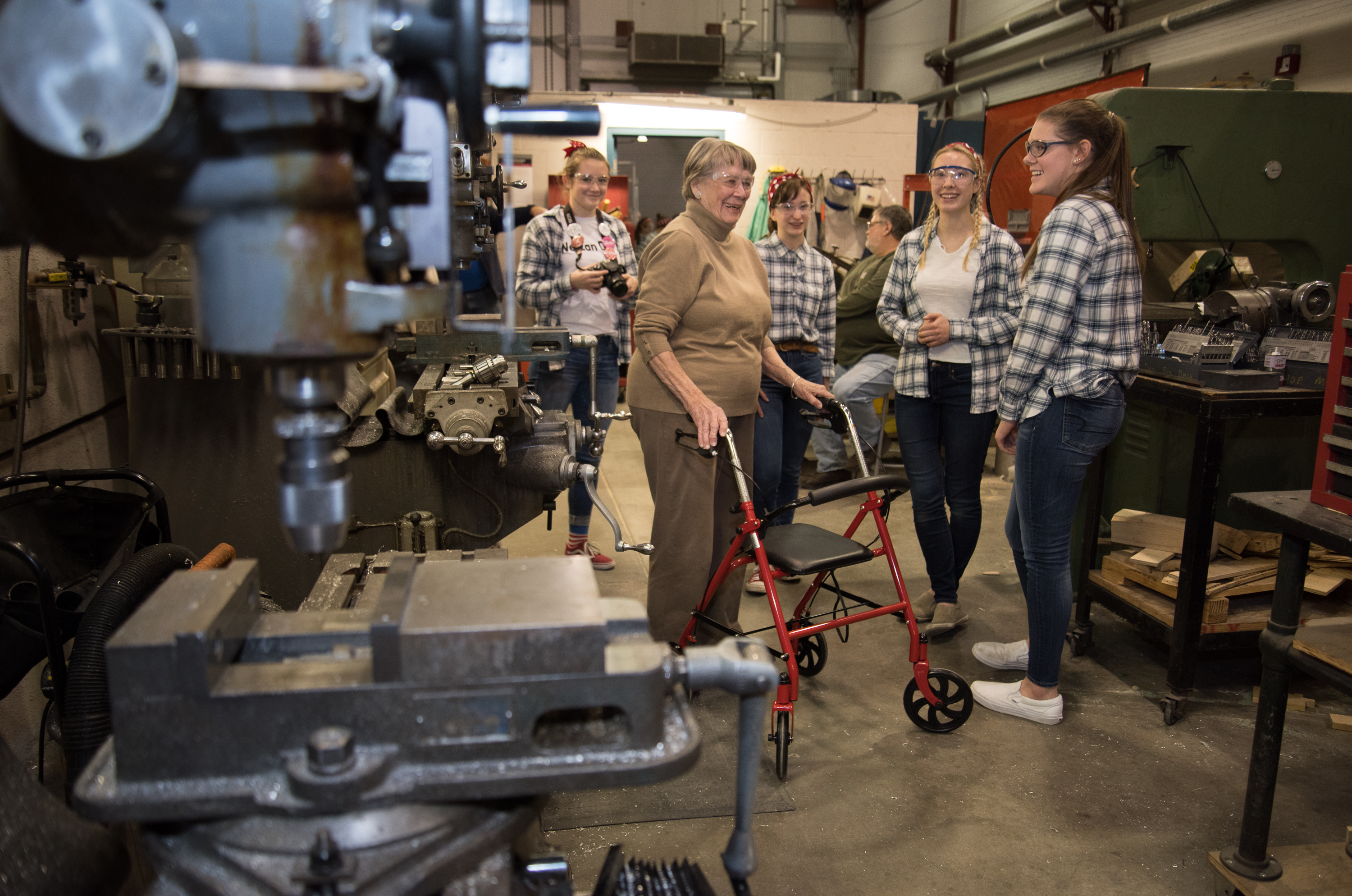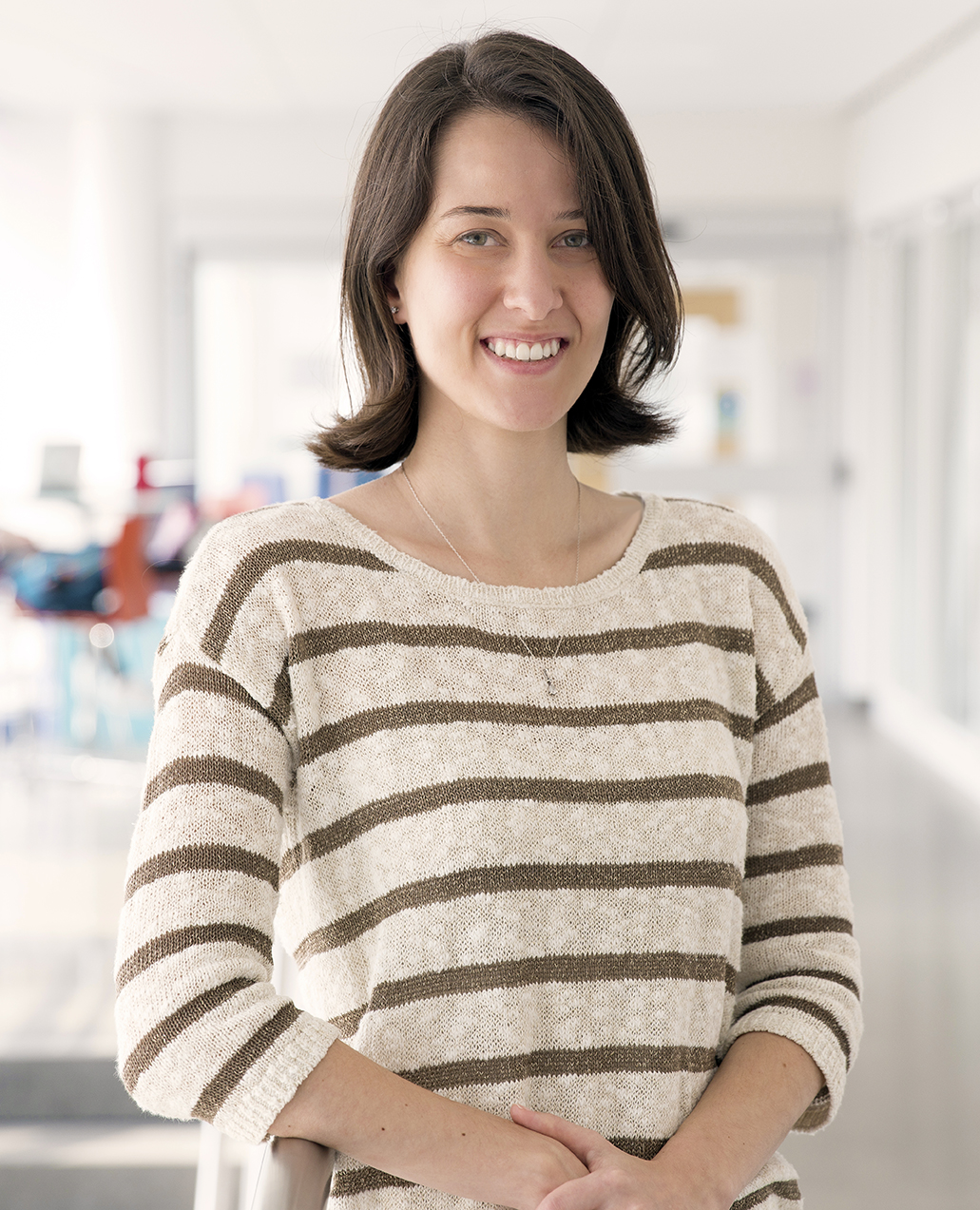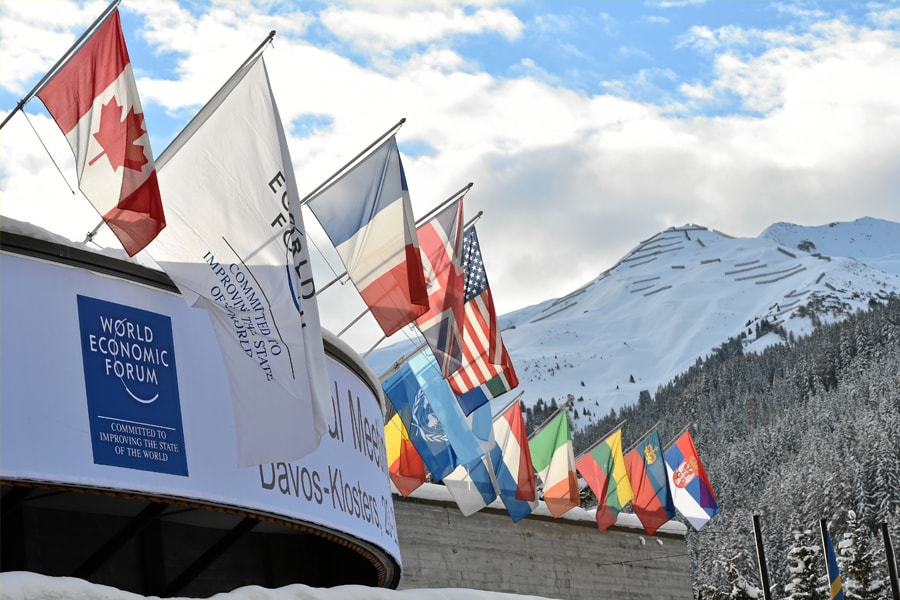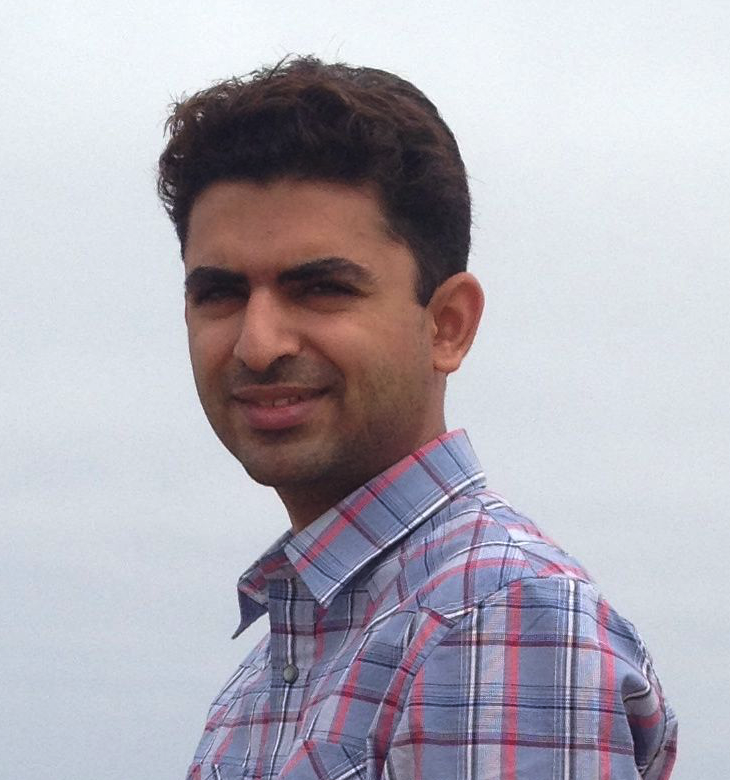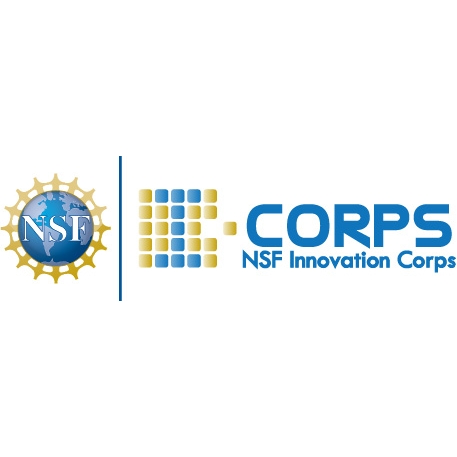Girls of Steel Meet a Real Rosie the Riveter
The Girls of Steel, the all-female robotics team sponsored by Carnegie Mellon University's Field Robotics Center, has long used World War II's iconic Rosie the Riveter as an inspiration and a team logo. On Jan. 27, the team met a real "Rosie."Julia Parsons, 96, a Carnegie Tech graduate, told the team about her exploits as a Navy codebreaker during the war and then had a look at the team's latest robot-building efforts."It was really great to be able to meet her," said Girls of Steel member Lauren Scheller-Wolf, 17, who is schooled at home. "I think everyone on the team was incredibly impressed by her and what she accomplished, and she's definitely a good role model for all of us."Parsons earned a humanities degree in 1942 and worked briefly in an Army laboratory, fixing gauges used in steel mills to produce shells and other explosive ordnance. She soon joined the Navy and, because she had studied German, was sent to Washington, D.C., to join a codebreaking team. For the remainder of the war, she helped decipher German U-boat messages sent via the infamous Enigma encryption machine. After the war, she taught English at North Allegheny High School."Her stories were incredibly inspiring, and I loved being able to talk to her about our team and what we do," said Anna Nesbitt, 14, of Winchester Thurston School. "The way that she talked about her experiences as a codebreaker gave me insight into what Girls of Steel represents, and I couldn't be happier to be a part of the team."The team of about 50 girls from Pittsburgh-area middle, high and home schools competes in the FIRST Robotics Competition. This year's competition, "FIRST Power Up" requires teams to build autonomous and teleoperated robots that will deliver "power cubes," which are used to control switches or scales to earn points."Meeting Julia Parsons was like traveling back in time," said Theresa Richards, outreach program manager for the Robotics Institute. "She is an excellent inspiring role model for the Girls of Steel, as a woman who accepted challenges and tried new things, going beyond the usual expectations of working as secretaries, nurses, costume designers and homemakers." (You can read more in a lengthier story in the Pittsburgh Post-Gazette.)

